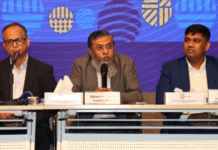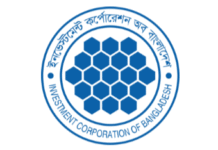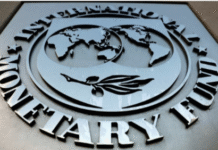At the NBR arranged annual consultative meeting with stakeholders from various sectors of the economy prior to finalizing the next national budget, Finance Minister AMA Muhith said that the government will not continue it in the forthcoming budget.
“The opportunity will not continue in the 2014-15 budget,” he said addressing the meeting held at Sonargaon Hotel in the city on Wednesday last.
But the minister’s remark came in the foothill of a comment of the NBR chairman Gulam Hussain who had favourable spoken of the matter at yet another pre-budget meeting last week.
He had indicated in that meeting that the scope may continue to legalise undisclosed income or the black money which may otherwise go out of the country under the cover of rampant capital flight to new destinations like Malaysia, Dubai and Canada.
Thus it appears that the policy makers are still undecided as to whether to continue it while leading economists like Debapriya or Zahid Hussain are opposed to it saying it is destroying fiscal discipline without visible benefits from the controversial provision in the budget.
But political pressure is high on the government to keep the window open to persons and swindlers having the spill over of unearned income from illegal sources. Large number of people in the government is holding illegal income and they want it as a safety bulb if they ever come to face trouble. So the decision may come at the last moment
Fiscal figure said between 2002 and 2011, a total of $16 billion left the country which may be otherwise said laundered out of the country by vested interest groups.
The figure was quoted in a December 2013 study by Global Financial Integrity, a US-based non-profit organisation which made the disclosure to help poor countries to combat cross-border capital flight.
Senior economists at World Bank corroborated the fact. “It appears that the amount of illicit financial outflow from Bangladesh is quite large, relative to the size of its GDP,” Zahid Hussain, WB lead economist in Dhaka office said.
Barring a few exceptions, the scope to legalise black money was present, in one form or the other, in every year’s budget, but parties were not much interested to exploit the facility and rather took the money out of the country under different cover, he said.
Between fiscal 1971-72 and fiscal 2012-13, the NBR allowed the whitening of Tk 13,808 crore with payment of Tk 1,455 crore; tax which was not however a significant amount anyway.
It showed that the idea of whitening of the black money sounds more promising than
was able to bring any substantial results and deposit of tax at the exchequer. News reports quoting Debapriya Bhattacharya, of the Centre for Policy Dialogue said he was just opposed to it on ethical reason while it is also not bringing any practical result.
“I oppose it from all perspectives, in terms of social justice, economic reason or political culture,” He dismissed the idea as circulated by certain quarters saying they have no data to back up plea in favour of whitening the black money. .
“The reality is that there is no evidence that such big liberal provisions has brought about big amount of investment in the economy.” Rather, it is encouraging a culture of tax evasion, which, in turn, is an unjust punishment to honest tax payers, Bhattacharya said.
Zahid Hussain said the illicit outflows of money in the last four years showed only about $70 million was whitened annually during this time whereas the illicit capital flight averaged about $1.5 billion.
A rather generous black money whitening facility was in place in 2010 but the size of capital flight was reported at $2.19 billion in that year. “This is not surprising since the facility has nearly become a permanent fixture of the fiscal incentive regime in Bangladesh,” he said.
Source: Weekly Holiday









